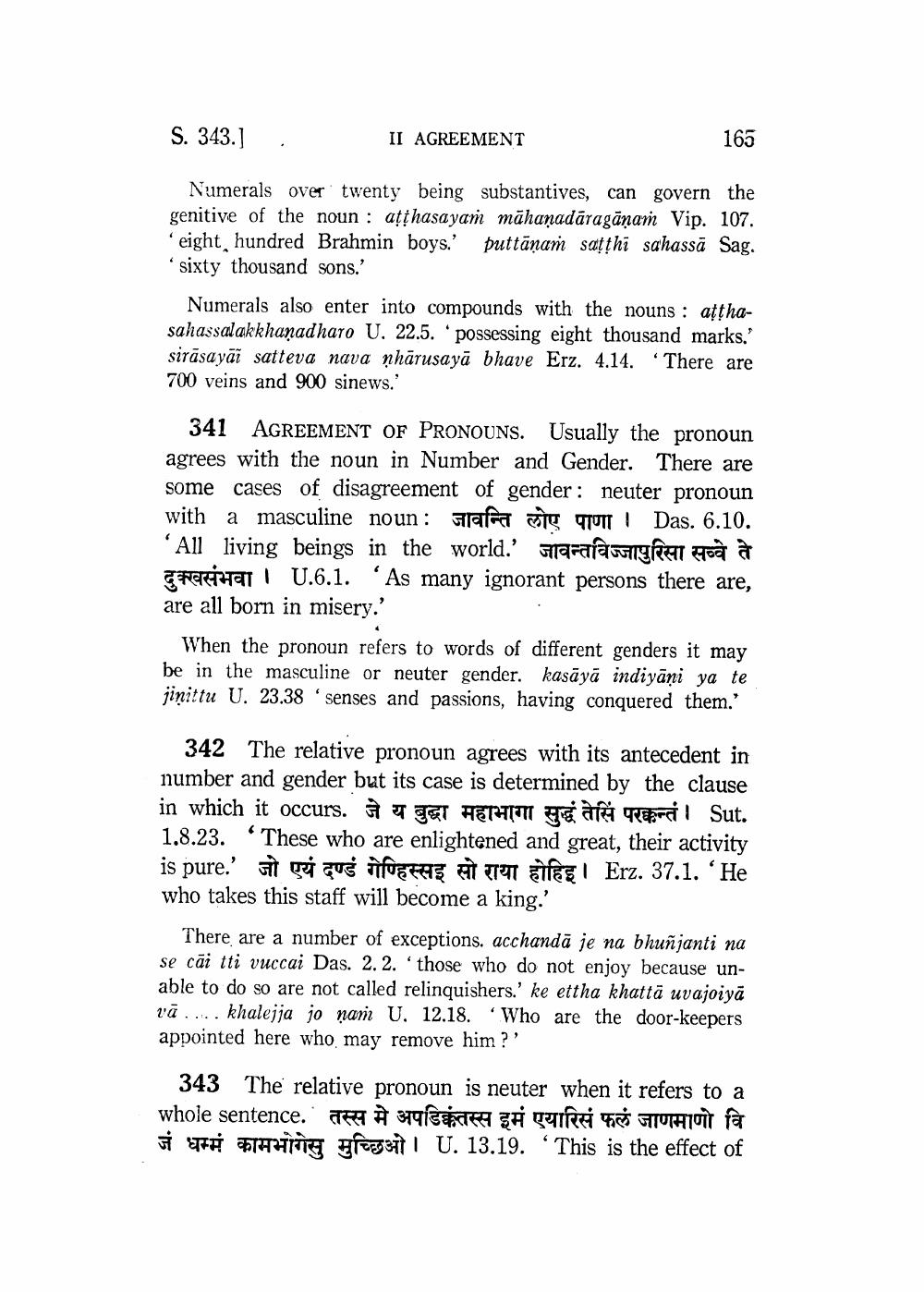________________
S. 343.)
.
II AGREEMENT
165
Numerals over twenty being substantives, can govern the genitive of the noun : atthasayam māhanadāragānam Vip. 107. eight hundred Brahmin boys.' puttānam saţthi sahassā Sag. sixty thousand sons.'
Numerals also enter into compounds with the nouns: atthasahassalakkhanadharo U. 22.5. possessing eight thousand marks.' sirāsayāi satteva nava nhārusayā bhave Erz. 4.14. "There are 700 veins and 900 sinews.'
341 AGREEMENT OF PRONOUNS. Usually the pronoun agrees with the noun in Number and Gender. There are some cases of disagreement of gender: neuter pronoun with a masculine noun: graf og om! Das. 6.10. 'All living beings in the world.' जावन्तविज्जापुरिसा सव्वे ते CREATET I 1.6.1. As many ignorant persons there are, are all born in misery.'
When the pronoun refers to words of different genders it may be in the masculine or neuter gender. kasāyā indiyāni ya te jiņittu U. 23.38 'senses and passions, having conquered them."
342 The relative pronoun agrees with its antecedent in number and gender but its case is determined by the clause in which it occurs. जे य बुद्धा महाभागा सुद्धं तेसिं परकन्तं । Sut. 1.8.23. “These who are enlightened and great, their activity is pure.' gei que totes en EES Erz. 37.1. 'He who takes this staff will become a king.'
There are a number of exceptions. acchandā je na bhuñjanti na se cãi tti vuccai Das. 2.2. 'those who do not enjoy because unable to do so are not called relinquishers.' ke ettha khattā uvajoiyā vā.... khalejja jo nam U, 12.18. Who are the door-keepers appointed here who may remove him?'
343 The relative pronoun is neuter when it refers to a whole sentence.' 59 391 gå ge TIC FIOTHÌ fê PETER FAHRET gregoshti U. 13.19. 'This is the effect of




